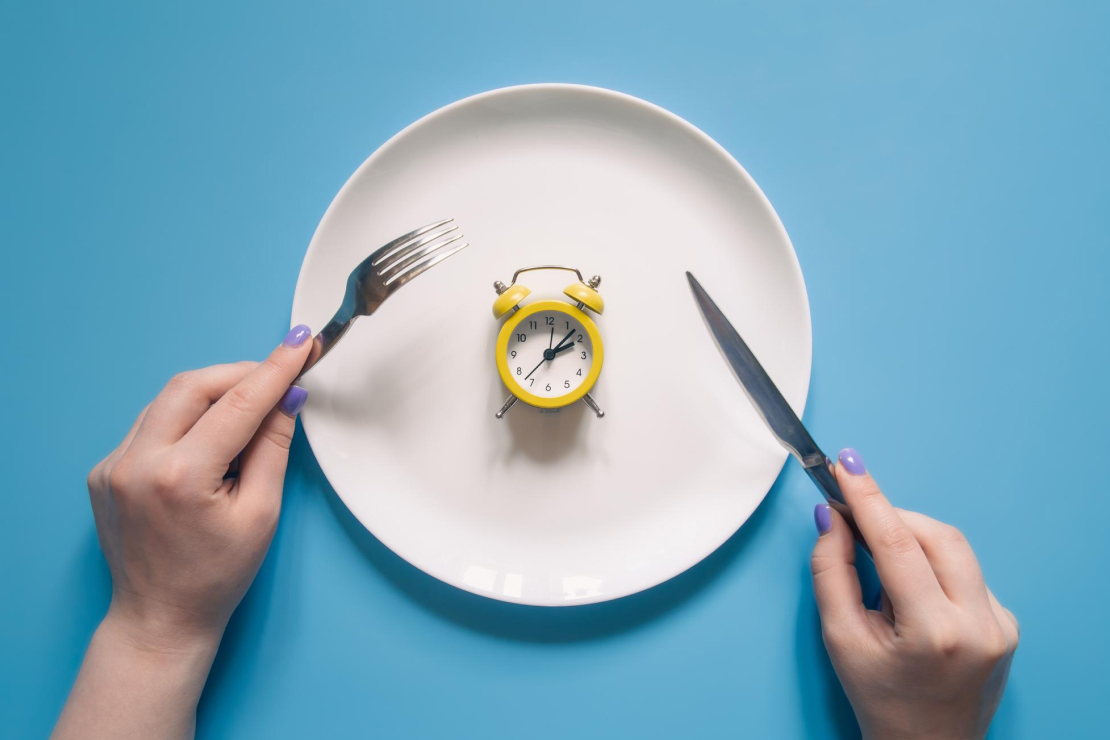Is Skipping Breakfast Effective for Intermittent Fasting?
Discover the science behind skipping breakfast for intermittent fasting, its effectiveness for weight loss, and how to determine if it's right for your lifestyle.

Table of Content
Introduction
In recent years, intermittent fasting (IF) has emerged as a powerful tool for weight management and metabolic health. Among the various approaches to IF, skipping breakfast has become increasingly popular, sparking debates about its effectiveness and potential impact on overall health. But is forgoing your morning meal really the key to unlocking the benefits of intermittent fasting?
What Is Intermittent Fasting and Why Meal Timing Matters
Intermittent fasting is not just about skipping meals—it's a structured approach to eating that alternates between periods of fasting and feeding. This ancient practice has gained modern scientific backing for its potential benefits in metabolic health, longevity, and weight management. The timing of your meals can significantly impact your body's hormonal responses, metabolic rate, and overall health outcomes.
Key Aspects of Intermittent Fasting:
- Metabolic Switching: Fasting triggers a shift from glucose to fat metabolism, promoting cellular repair processes
- Hormonal Impact: Fasting influences insulin, growth hormone, and norepinephrine levels
- Circadian Alignment: Eating patterns can either support or disrupt your natural body clock
- Autophagy Activation: Extended fasting periods can initiate cellular cleaning processes
Common protocols include:
| Protocol | Fasting Window | Eating Window | Best For | Key Benefits |
|---|---|---|---|---|
| 16:8 | 16 hours | 8 hours | Beginners | Easy adaptation, sustainable |
| 18:6 | 18 hours | 6 hours | Intermediate | Enhanced fat burning |
| OMAD | 23 hours | 1 hour | Advanced | Maximum autophagy |
| 5:2 | 2 days/week | 5 days/week | Flexible dieters | Weekly flexibility |
Meal timing plays a crucial role in optimizing metabolic health. Our bodies have evolved with natural circadian rhythms that influence how we process food throughout the day. Understanding these patterns can help us make more informed decisions about when to eat—or not eat. Research shows that our insulin sensitivity, digestion efficiency, and nutrient absorption vary throughout the day, making timing a crucial factor in the effectiveness of any fasting protocol.
Why Breakfast Is Often Skipped in IF
Skipping breakfast has become a popular choice for intermittent fasting for several practical and physiological reasons:
- Natural extension of overnight fasting
- Easier to maintain in modern work schedules
- Morning cortisol peak can help suppress hunger
- Simplified daily meal planning
Scientific Findings: Does Skipping Breakfast Work?
Research has shown several potential benefits of skipping breakfast as part of an intermittent fasting routine. Multiple studies have demonstrated significant metabolic advantages, particularly when aligned with our natural circadian rhythms. However, the effectiveness can vary based on individual factors such as genetics, lifestyle, and existing health conditions.
Key Research Findings:
- Metabolic Impact: Studies show a 10-30% increase in metabolic rate during morning fasting
- Hormonal Benefits: Morning fasting can optimize growth hormone secretion
- Cognitive Function: Many participants report improved mental clarity and focus
- Weight Management: Average reduction of 300-500 daily calories without conscious restriction
Documented Benefits:
- Enhanced Fat Burning: Morning fasting can increase fat oxidation by up to 20% due to depleted glycogen stores
- Improved Insulin Sensitivity: Extended fasting periods may enhance metabolic flexibility and reduce insulin resistance
- Reduced Total Calorie Intake: Many people naturally eat 20-30% fewer calories when skipping breakfast
- Increased Mental Clarity: Some report better focus during fasted morning hours due to stable blood sugar and ketone production
- Simplified Lifestyle: Reduced meal prep time and morning routine optimization
- Cellular Repair: Extended fasting periods activate autophagy and cellular maintenance processes
Skipping Breakfast vs Skipping Dinner: Which Is More Effective?
The choice between skipping breakfast or dinner can significantly impact your results. Recent chronobiology research suggests that our bodies process nutrients differently throughout the day, with insulin sensitivity and metabolic rate following distinct circadian patterns. Understanding these differences can help you optimize your fasting schedule for maximum benefits.
| Factor | Skip Breakfast | Skip Dinner |
|---|---|---|
| Circadian Alignment | May conflict with natural rhythms | Better aligned with circadian biology |
| Social Convenience | More socially acceptable | Can be challenging for family meals |
| Exercise Performance | May affect morning workouts | Better for morning training |
| Metabolic Impact | Moderate fat oxidation | Enhanced metabolic flexibility |
| Sleep Quality | Minimal impact | May improve sleep quality |
| Hunger Management | Initial adaptation needed | Often easier to maintain |
Important Timing Factors:
- Metabolic Efficiency: Research shows better glucose control with earlier eating windows
- Hormonal Optimization: Morning cortisol and evening melatonin patterns affect meal timing benefits
- Activity Alignment: Consider your workout schedule when choosing which meal to skip
- Lifestyle Compatibility: Success often depends on how well the schedule fits your daily routine
- Individual Variation: Genetic factors and chronotype influence optimal meal timing
Who Should and Shouldn't Skip Breakfast
While skipping breakfast can be effective, it's not suitable for everyone. Consider these factors:
Suitable For:
- Healthy adults with stable blood sugar
- People with flexible schedules
- Those who naturally aren't hungry in the morning
- Evening exercisers
Not Recommended For:
- Diabetics or pre-diabetics
- People with eating disorders
- Pregnant or nursing women
- Those with adrenal fatigue
How to Do It Right If You Skip Breakfast
If you decide to skip breakfast, follow these guidelines for optimal results:
Sample Morning Routine:
- Wake up and drink 500ml water with electrolytes
- Have black coffee or green tea (optional)
- Engage in light morning activity
- Stay busy during fasting hours
- Break fast with a balanced meal around noon
Long-Term Sustainability: Can You Stick with It?
Success with breakfast skipping depends largely on sustainable implementation. Consider these factors for long-term adherence:
- Start gradually with shorter fasting windows
- Listen to your body's signals
- Be flexible when needed
- Focus on meal quality during eating windows
- Monitor energy levels and performance
Frequently Asked Questions
Does skipping breakfast burn more fat?
While skipping breakfast can extend your fasting window and potentially increase fat oxidation, the total caloric deficit over time matters most for fat loss.
Can I drink coffee while skipping breakfast during IF?
Yes, black coffee without additives is permitted during fasting and may help suppress appetite and boost metabolism.
Is it better to skip breakfast or dinner for weight loss?
While both can be effective, research suggests that aligning eating with your circadian rhythm (eating earlier, skipping dinner) may offer additional metabolic benefits.
Will I lose muscle if I skip breakfast regularly?
Not necessarily, especially if you maintain adequate protein intake during your eating window and engage in regular strength training.
Is it bad to skip breakfast every day?
For healthy individuals, skipping breakfast can be part of a sustainable intermittent fasting routine. However, individual responses vary, and it's important to monitor your body's signals.
Conclusion
Skipping breakfast can be an effective strategy for intermittent fasting, but it's not a one-size-fits-all solution. Success depends on your individual circumstances, lifestyle, and health goals. Whether you choose to skip breakfast or dinner, the key is finding an approach that you can maintain consistently while supporting your overall health and wellness objectives.
Start Your Health Journey Today
Download Macro Tracking AI and take control of your nutrition with the power of artificial intelligence.
Download on App Store

